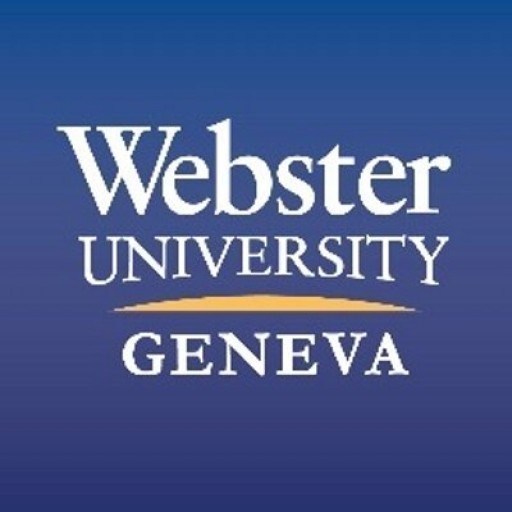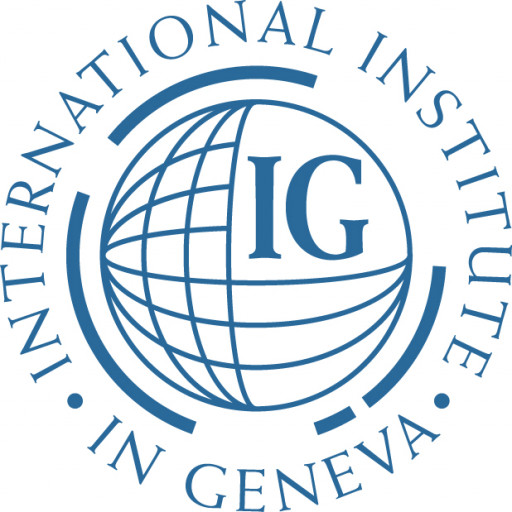The Bachelor of Arts in Media Communications at Webster University Geneva offers students a comprehensive and dynamic education in the rapidly evolving field of media and communication industries. This program is designed to equip students with the theoretical knowledge, practical skills, and critical thinking abilities necessary to succeed in diverse media environments. Throughout the course of study, students explore the history and development of media, its impact on society, and contemporary issues related to digital communication, journalism, public relations, advertising, and multimedia production.
The curriculum emphasizes a multidisciplinary approach, integrating theories and practices from communication studies, media arts, technology, and cultural studies. Students engage in hands-on projects, including video production, digital storytelling, and social media management, fostering their creativity and technical proficiency. The program encourages active participation in real-world scenarios through internships, collaborative projects, and guest lectures from industry professionals, helping students build a professional network and understand industry demands.
In addition to core media courses, students have opportunities to specialize in areas such as digital media production, media management, or journalism, allowing them to tailor their education to their career aspirations. The program also emphasizes critical analysis of media content and ethical considerations in communication to prepare students for responsible and impactful media practices. Graduates of the program are well-equipped to pursue careers in journalism, broadcasting, advertising, public relations, digital media, content creation, or further academic study.
Webster University Geneva’s diverse, international environment enriches the learning experience, fostering global perspectives and intercultural understanding. Small class sizes promote personalized attention and active student engagement, supported by experienced faculty members who are experts in their fields. With a flexible curriculum and focus on innovation, the Media Communications program prepares students to become effective communicators and media professionals in an interconnected world, capable of adapting to technological advances and evolving industry trends. Whether aspiring to work in media production, strategic communication, or media management, graduates leave with a strong foundation and the skills necessary to make a meaningful impact in the global media landscape.
Detailed Course Facts
Application deadline At least four months before the start term Tuition fee- EUR 26500 Year (EEA)
- EUR 26500 Year (Non-EEA)
Full-time undergraduate tuition (per semester) CHF 15,920 flat fee,includes textbooks/e-book
Start date January,August 2015 Freshmen can begin their studies in either the Fall 1 term (August) or Spring 1 (January); Transfer students can begin their studies in any of the five terms: August, October, January, March or May. Credits 128Duration full-time 48 months Languages Take an IELTS test
- English
Course Content
Degree requirements:
- - 48 credit hours required courses
- - 44 credit hours elective courses
- - 36 credit hours general education courses
- - Portfolio Review
Required courses:
- MEDC 1010 Introduction to Mass Communications
- MEDC 1020 Introduction to Media Production
- MEDC 1050 Introduction to Media Writing, or
- JOUR 1030 Fundamentals of Reporting
- MEDC 1630 Introduction to Media Literacy
- MEDC 2200 Ethics in the Media
- MEDC 3190 Introduction to Media Research
- MEDC 4100 The Law and the Media
- MEDC 4620 Senior Overview, or
- MEDC 4950 Professional Media Practicum*
plus 2 courses from the following:
- SPCM 1280 Interpersonal Communication
- MEDC 1500 Applied Media Aesthetics
- MEDC 2800 Cultural Diversity in the Media
- MEDC 3260 International Communications
and 1 course from the following:
- AUDI 1930 Audio Production I
- PHOT 1000 Photo I
- INTM 1600 Introduction to Interactive Media
- VIDE 1810 Video Production I
- ADVT 1940 Introduction to Marketing Communications
- BJRN 2410 Introduction to Radio-TV journalism
- SCPT 2900 Scriptwriting
- PBRL 2920 Writing for Public Relations
Portfolio Review
As a student majoring in media communications, you must complete a portfolio of your work after you have completed the following courses:
- * MEDC 1010 Introduction to Mass Communications
- * MEDC 1020 Introduction to Media Production
- * 6 credit hours of any introductory production courses (for example: VIDE 1810, PHOT 1000, FILM 2320, JOUR 1030, AUDI 1000, SCPT 2900, ADVT 2910, PBRL 2920)
- * 3 credit hours of media theory courses
The Department will review your portfolio with you to assess your progress. We can then offer you guidance for your academic program and career goals.
*Capstone Course Requirement
The capstone course is an advanced course in which you demonstrate your mastery of the subject matter. It is required to complete the major and should be taken during your senior year.
General Education Requirements
A minimum of 36 credit hours must be taken within the selection of Liberal Arts and Sciences courses, with the following distribution:
- Category One - 18 hours
Literature, History, Foreign language, General studies, Religious studies, Philosophy, Visual Art, Dance, Theatre, Music, Composition
- Category Two - 12 hours
Political Science, Sociology, Psychology, Anthropology, Women's studies, Multicultural studies, International Relations, International studies, Economics, Human Rights
- Category Three - 6 hours
Computer Applications, Computer Science, Mathematics, Natural Sciences, Physical Sciences
English Language Requirements
IELTS band : 6 TOEFL paper-based test score : 550 TOEFL iBT® test : 80
To study at this university, you have to speak English. We advice you to
take an IELTS test. More About IELTSRequirements
Freshmen are admitted to the University following the successful completion of a twelve-year American high school program or its international equivalent as recognized by Webster.
Students whose native or predominant language is not English may need additional English proficiency that requires them to enroll in English as a Second Language (ESL).
Work Experience
No work experience is required.
Related Scholarships*
- Academic Excellence Scholarship
"The Academic Excellence Scholarship can provide up to a 50 % reduction in tuition per semester. These scholarships will be renewed if the student maintains superior academic performance during each semester of their 3-year Bachelor programme. The scholarship will be directly applied to the student’s tuition fees."
- Alumni Study Travel Fund
Scholarships for students who are already attending the University of Reading.
- Amsterdam Merit Scholarships
The University of Amsterdam aims to attract the world’s brightest students to its international classrooms. Outstanding students from outside the European Economic Area can apply for an Amsterdam Merit Scholarship.
* The scholarships shown on this page are suggestions first and foremost. They could be offered by other organisations than Webster University Geneva.
The Bachelor of Science in Media Communications at Webster University Geneva offers students a comprehensive curriculum designed to develop their understanding of media theory, production, and critical analysis. The program emphasizes the role of media in society and prepares students to work in various sectors including broadcasting, digital media, public relations, and advertising. Throughout the course, students engage with a diverse set of subjects such as media history, journalism, visual communication, digital media production, and communication theory. The curriculum integrates both theoretical frameworks and practical skills, enabling students to produce high-quality content across multiple platforms, including print, audio, video, and online media.
In addition to core media courses, students have opportunities to specialize in areas such as strategic communication, media management, or new media technologies. The program often includes internships and practical projects, providing real-world experience and fostering professional networking. Webster University Geneva is committed to providing an international perspective, with faculty members and students from diverse backgrounds, thus enriching the learning environment with a variety of viewpoints. The program also encourages critical thinking about the ethical, legal, and societal implications of media practices and technologies. Graduates of the Media Communications program are well-equipped to pursue careers in media production, public relations, content creation, media analysis, and corporate communications, among others. The university's strong ties with media industries and its emphasis on experiential learning make it a competitive choice for students seeking a global career in media and communications.







